China's 'new quality combat capabilities' still in exploratory phase
With "new quality combat capabilities" the latest buzzword among the Chinese leadership, the question is what the term or concept actually entails, given that it is currently not well defined, says Lianhe Zaobao correspondent Wong Siew Fong. This means that it is up to local government officials to explore and find their way.
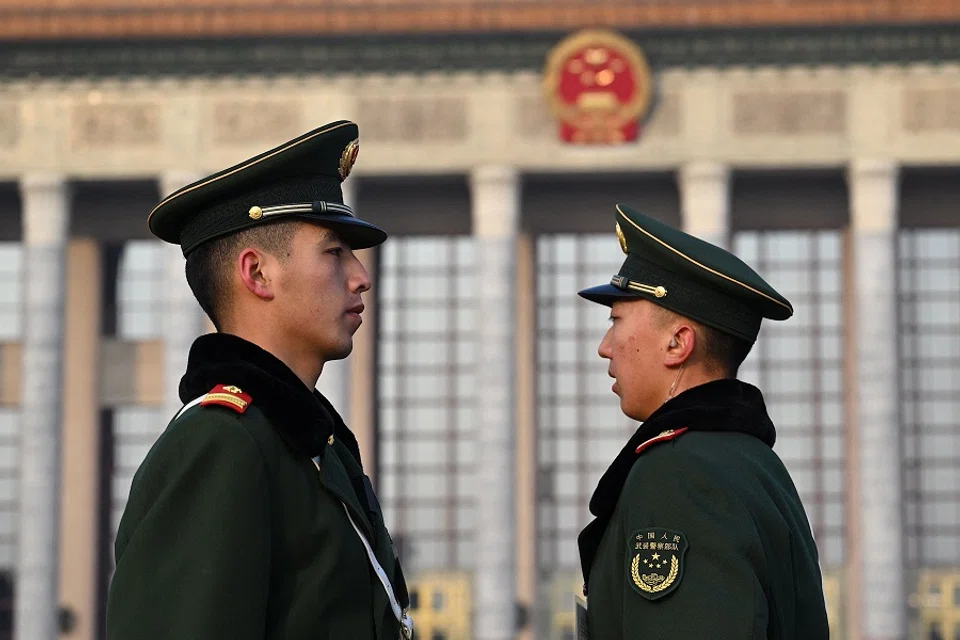
"New quality" has recently become a political buzzword in China. Apart from the administrative department's emphasis on developing "new quality productive forces", the country's public security bureaus have also proposed to accelerate the formation and enhancement of "new quality combat capabilities" to safeguard political and social stability at a higher standard.
However, the public security bureaus of various regions are currently giving different accounts of new quality combat capabilities, which interviewed academics believe is because the definition of the term is still being explored. Notwithstanding, they expect its core content to include the further use of technology to strengthen social stability and network supervision.
Beginning of the concept
The concept was first proposed by Chinese State Councilor and Minister of Public Security Wang Xiaohong during a nationwide meeting with the country's provincial police chiefs in January. He had urged public security bureaus to accelerate the formation and enhancement of new quality combat capabilities, faithfully fulfil their sacred duties and strive to promote the modernisation of public security work to contribute to Chinese modernisation in a solid and stable way.
At the Two Sessions in March when Wang joined a deliberation with deputies from Hebei during the National People's Congress, he had also reminded them to speed up efforts to achieve new quality combat capabilities to better safeguard the country's political security and maintain social stability so as to contribute to Chinese modernisation.
... the definition of China's new quality combat capabilities seems less clear. Officials have yet to describe what it entails and there are also inconsistencies in the way various regions are describing related work.
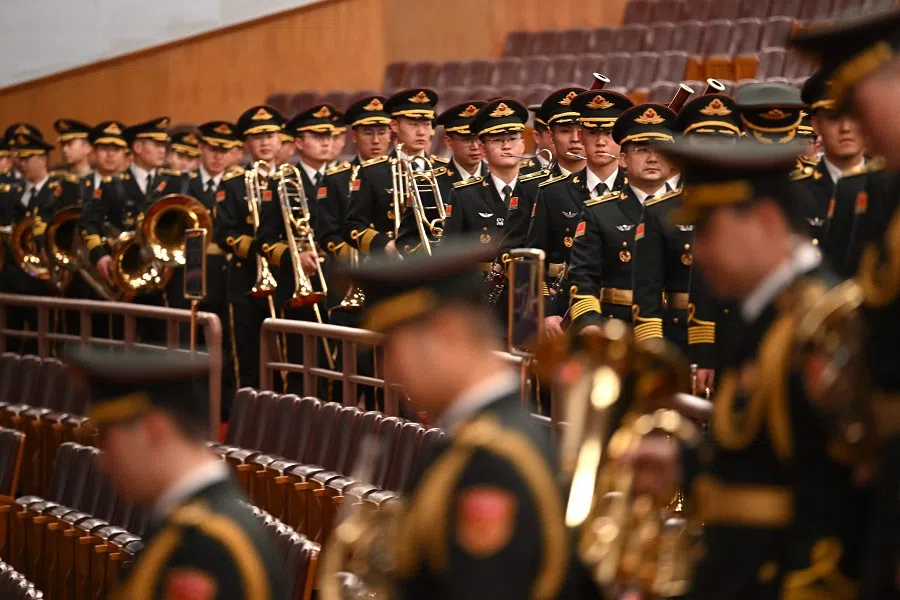
Following Wang's clear instructions, public security bureaus in Heilongjiang, Henan, Sichuan and across the country from county to provincial levels quickly prioritised creating and strengthening new quality combat capabilities.
Action by authorities
China's public security bureaus have ramped up the use of technology in public security work over the past few years. The Ministry of Public Security and Ministry of Science and Technology issued a three-year action plan in late February last year, explicitly proposing the formation of a strategic science and technology system in public security, as well as improving the cultivation of science and technology talent in public security.
Compared with the clear arrangements detailed in the three-year action plan, the definition of China's new quality combat capabilities seems less clear. Officials have yet to describe what it entails and there are also inconsistencies in the way various regions are describing related work.
In mid-March, the Heilongjiang Public Security Bureau called for persistent reforms and innovation to advance the modernisation of the police system, and to boldly implement innovative practices in accelerating the formation and enhancement of new quality combat capabilities so as to advance the modernisation of science and technology in public security.
On his part, Zheng Haiyang, vice-governor of Henan and director-general of Henan's public security department, focused on big data when speaking on new quality combat capabilities on 7 March, and proposed the need to strongly promote the intelligent construction and application of big data in public security.
"Such concepts need to be explored locally within China, and promoted by the party central before they get clearer. Currently, the general direction is developing technology." - Tsai Wen-hsuan, Research Fellow, Institute of Political Science, Academia Sinica
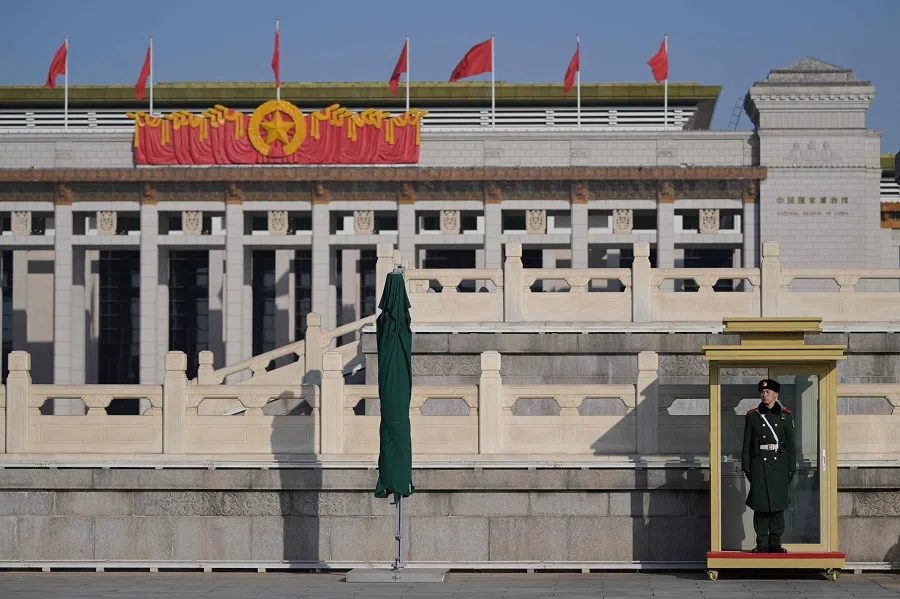
Zhai Jinpeng, dean of the school of police combat training (警体战训学院) at the People's Public Security University of China, expounded on the term "new quality combat capabilities" in an article published in the China Police Daily in February. He advocated strengthening institutional innovation, reinforcing police talent cultivation, systemising the rule of law, and embarking on a science and technology innovation drive, while integrating social governance, as means through which to form and enhance new quality combat capabilities.
In an article published in the Legal Daily in mid-March, Yuan Qinhua, vice-governor of Jiangxi and director-general of Jiangxi's public security department, asserted that the province will create and strengthen new quality combat capabilities in five aspects: enhancing political leadership skills, improving service capabilities, strengthening grassroots governance, upgrading risk prevention capabilities and ramping up scientific and technological support.
After December 2023 when the development of new quality productive forces was proposed during the Central Economic Work Conference, Chinese Communist Party (CCP) higher-ups once more stressed the importance of developing new quality productive forces throughout the period of the Two Sessions, so that "new quality productive forces" became a key political slogan.
... "each department would have to follow the lead of the upper echelons in the CCP who raised this slogan, and demonstrate their political loyalty in proclaiming this slogan". - Assistant Professor Lu Xi, LKYSPP, NUS
Academics weigh in
Academics who were interviewed all felt that the frequent mention of new quality combat capabilities by the public security authorities across all levels is mainly in response to the concept of new quality productive forces proposed by the CCP higher-ups.
In an interview with Lianhe Zaobao, Tsai Wen-hsuan, research fellow at the Institute of Political Science at Academia Sinica in Taiwan, analysed that whenever the CCP introduces new concepts, the content is generally vague. "Such concepts need to be explored locally within China, and promoted by the party central before they get clearer. Currently, the general direction is developing technology."
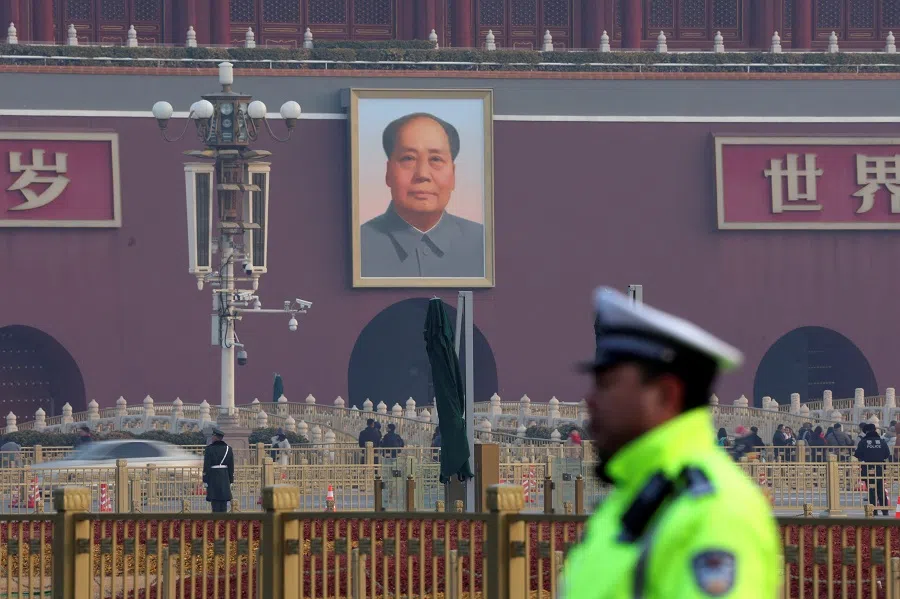
Tsai said it is hard to ascertain clearly what new quality combat capabilities entails, because once public security technological supervisory capabilities get too powerful, the autonomy and economic activity for local areas could be constrained due to top-down leadership, and so officials would still need to explore how to strike a balance.
Lu Xi, an assistant professor at the Lee Kuan Yew School of Public Policy (LKYSPP) at the National University of Singapore (NUS), said Chinese officials would likely continue to spend quite some time to explore and determine exactly what new quality combat capabilities would entail. Its main significance does not lie in coming up with a policy detail, but rather "each department would have to follow the lead of the upper echelons in the CCP who raised this slogan, and demonstrate their political loyalty in proclaiming this slogan".
... that public security agencies proposed the concept of new quality combat capabilities could also warn of the next step in which they would go deeper into exploring new technologies for the purpose of social control. - Wang Chih-sheng, former Secretary-General, Association of Chinese Elite Leadership
Possible implications
China has one of the world's leading hi-tech surveillance systems, and hi-tech surveillance by the Chinese public security has for many years drawn the attention of external observers when it comes to the topic of personal privacy for the people among other issues. This includes launching the world's largest video surveillance network, Skynet, in 2017, as well as being said to use facial recognition and location tracking technologies in the past couple of years to detain protestors during the pandemic.
Wang Chih-sheng, former secretary-general of the Association of Chinese Elite Leadership in Taiwan, analysed that on top of being a response to new quality productive forces, that public security agencies proposed the concept of new quality combat capabilities could also warn of the next step in which they would go deeper into exploring new technologies for the purpose of social control.
Wang felt that the mainland public security agencies have for years continued to push for use of hi-tech solutions to deal with cases, and at present they are merely using a new term to dress up the hi-tech projects they have been pursuing for so long. What is noteworthy is whether these agencies would expand on the scope of technological surveillance, from the actual Skynet to facial recognition and so on, and press even harder to expand towards data-based surveillance, such as a more systematic use of database resources.
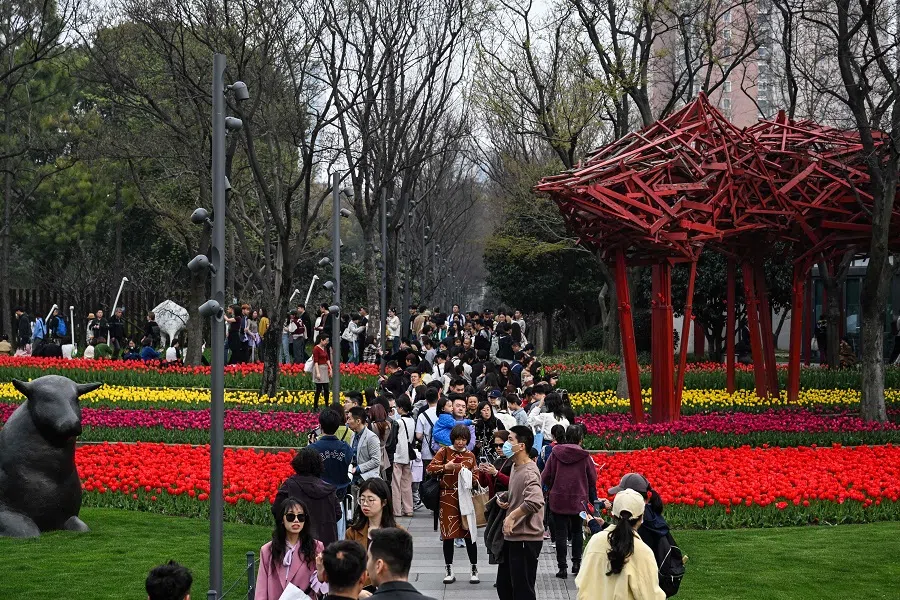
He said: "The concept of new quality productive forces is more towards the manufacturing and economic departments, and it will be much harder for it to be implemented in the area of social control. But after a period of adjustment, it is likely that new quality combat capabilities would fall under certain key areas, including the increased use of technology for the purpose of stabilising society and for internet surveillance."
This article was first published in Lianhe Zaobao as "中国"新质公安战斗力"仍在探索期".



![[Video] George Yeo: America’s deep pain — and why China won’t colonise](https://cassette.sphdigital.com.sg/image/thinkchina/15083e45d96c12390bdea6af2daf19fd9fcd875aa44a0f92796f34e3dad561cc)
![[Big read] When the Arctic opens, what happens to Singapore?](https://cassette.sphdigital.com.sg/image/thinkchina/da65edebca34645c711c55e83e9877109b3c53847ebb1305573974651df1d13a)
